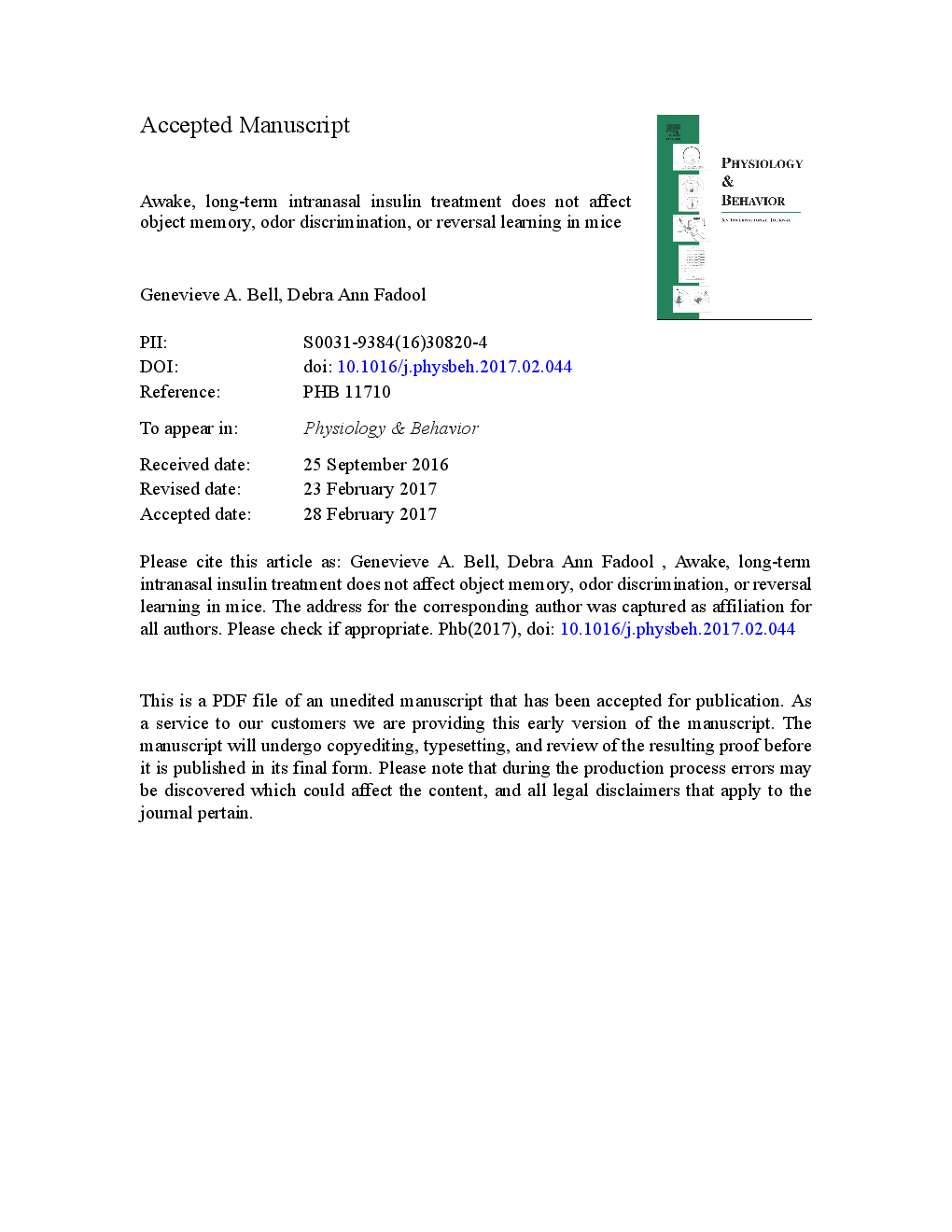ترجمه فارسی عنوان مقاله
ببخشید، درمان انسولین دراز مدت در داخل انسولین بر حافظه شیء، تبعیض بویایی یا یادگیری معکوس در موش تاثیر نمی گذارد
عنوان انگلیسی
Awake, long-term intranasal insulin treatment does not affect object memory, odor discrimination, or reversal learning in mice
| کد مقاله | سال انتشار | تعداد صفحات مقاله انگلیسی |
|---|---|---|
| 122068 | 2017 | 42 صفحه PDF |
منبع

Publisher : Elsevier - Science Direct (الزویر - ساینس دایرکت)
Journal : Physiology & Behavior, Volume 174, 15 May 2017, Pages 104-113

